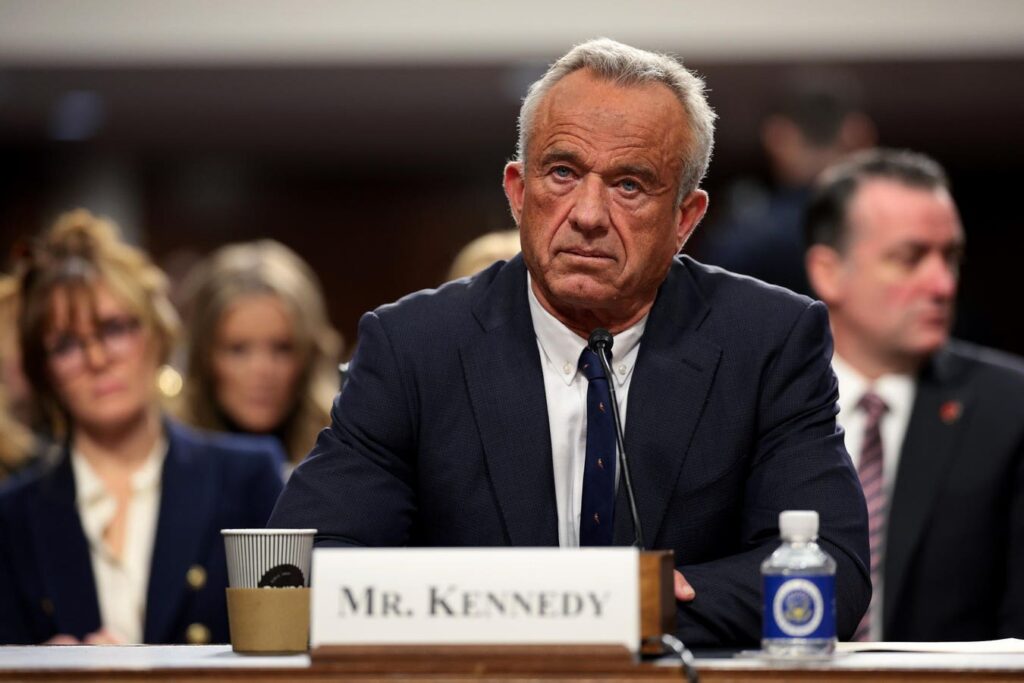The Trump Administration has cut by more than 40 percent the staff that oversees critical federal programs for older adults and younger people with disabilities who live at home. Health and Human Services Secretary Robert F. Kennedy Jr. fired the staffers who manage and review federal grants to state and local governments and community-based organizations for programs such as Meals on Wheels. It also eliminated regional office positions, along with those who evaluate the benefits of those programs and communicate the office’s work to grantees and the public at-large.
Those staff reductions came just four days after Kennedy abolished the office that managed those programs, called the Administration for Community Living. ACL, which had a staff of about 200 at the beginning of the year, manages critical programs such as Meals on Wheels, senior center nutrition, falls and elder abuse prevention, transportation, area agencies on aging, and family caregiver supports.
All are aimed at making it possible for people with chronic conditions to remain at home and avoid institutional care.
Jeopardizing Programs
The result: While Kennedy says he wants to refocus health policy on chronic disease, his cuts are likely to make life worse for those with chronic conditions and end up costing the medical system more money. Addressing chronic diseases not only means prevention or treatment, it also requires supporting those living with these conditions.
Kennedy said in late March he would split ACL’s responsibilities among three entities in the Department of Health and Human Services: the Administration for Families and Children, the Office of the Assistant Secretary for Policy and Evaluation, and the Centers for Medicare and Medicaid Services. However, Kennedy also made deep staff cuts at ACF and abolished ASPE, leaving staffers uncertain about how these programs will operate.
The Trump Administration has not stopped funding the programs administered by ACL, many of which are included in the Older Americans Act. ACL also manages the RAISE Act, which helps coordinate a broad range of federal programs for older adults and people with disabilities.
However, funding for those programs is in jeopardy as the Trump Administration and congressional Republicans look to cut domestic spending to help fund planned tax cuts.
While Kennedy did not formally cut spending for the programs managed by ACL, it is hard to see how they will continue to operate without staff to manage grants and other agreements with those who run OAA programs day-to-day. For example, how will a contract get renewed if there is no staff to measure its success and review the application?
Contrary To Chronic Disease Goals
Abolishing ACL and firing nearly half its staff was part of a broader move by the Trump Administration to eliminate a total of about 20,000 HHS positions, about one-quarter of its total staff. Roughly 10,000 resigned, many under pressure, before the latest announcement.
Kennedy’s purge at ACL seems contrary to his goal of refocusing HHS on chronic disease. In the press release announcing that he was abolishing ACL, Kennedy said, “We aren’t just reducing bureaucratic sprawl. We are realigning the organization with its core mission and our new priorities in reversing the chronic disease epidemic.”
Yet, all of those who will lose benefits from Kennedy’s decisions are living with some form of chronic disease. It may be conditions that mostly affect older adults, such as arthritis, heart disease, dementia, or Parkinson’s disease. Or it may be conditions that generally affect people at birth, such as Down’s syndrome, autism, or cystic fibrosis.
By making separate cuts to National Institutes of Health funding, Kennedy is curbing research that could prevent or treat some of these conditions. By slashing offices such as ACL, he is making it more difficult for people with these conditions to live as well as possible.
Raising Costs
At the same time, Kennedy’s choices will increase government costs, not reduce them. To the degree the Trump Administration is worried about cost savings, cutting supports to people of all ages with disabilities living at home will be counterproductive.
For example, as many as half of older adults who are seen in hospital emergency departments may be either malnourished of at risk for malnutrition. The cost for treating those with malnutrition: nearly $160 billion.
Even when programs such as Meals on Wheels and senior center meals programs had support in Washington, funding shortages meant older adults often waited to receive home delivered meals. In West Virginia, for example, roughly 1000 older adults are on a waiting list for the program.
Trump’s cuts to ACL will only worsen this situation, put more of those with chronic disease at risk, and increase costs to Medicare, which will pay when an older adult or younger person with a disability suffers a preventable medical event, such as a fall or malnutrition, and lands in an emergency department or is admitted to a hospital.
Abolishing ACL and firing nearly half its staff will harm millions of older adults, people with disabilities, and their families with no obvious benefit to other taxpayers.
Read the full article here















